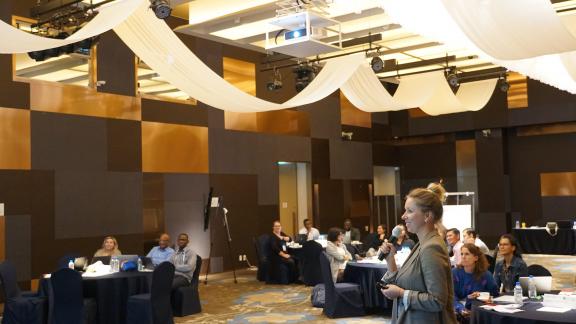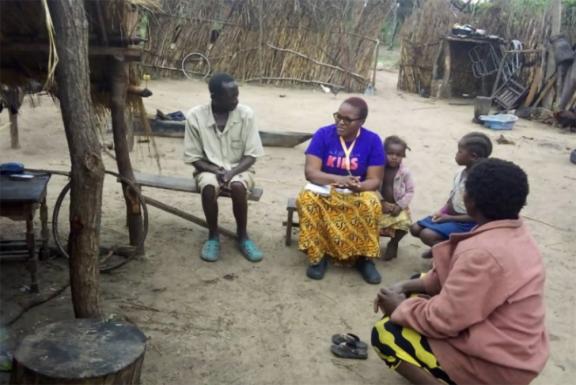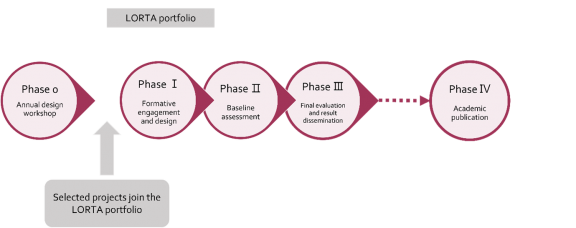LORTA: Impact evaluations
About LORTA
The Green Climate Fund (GCF) Evaluation Policy provides that the Independent Evaluation Unit (IEU) will be responsible for guiding, assisting and advising on real-time impact assessments/ evaluations, such as learning-oriented real-time impact assessments (LORTA). The IEU launched the LORTA programme in 2018. The goal of LORTA is to strengthen the capacity of accredited entities, implementing partners and project staff in assessing the impact of their intervention. Specifically, the LORTA team uses impact evaluation (IE) techniques —a specific type of evaluation based on causal inference—to help project teams understand which activities are working, which are most efficient and which approaches to scale up. Empirical evidence on impacts of climate-related projects is rather scarce, which enables LORTA to become one of the leading global programmes on impact evaluations of climate interventions.
More questions about LORTA? Email LORTA
The LORTA model
The LORTA programme takes two approaches in capacity-building:
First, we help GCF projects develop and implement rigorous evaluation designs. Our annual design workshops offer training to participating project staff and stakeholders on how to develop comprehensive impact evaluation designs adjusted to their circumstances. We cover various topics in the field of evaluation, including the concept of counterfactuals, experimental/non-experimental methods, behavioural science, and the application of satellite data. During the workshop, participants are given the opportunity to think through the benefits of impact evaluation for their projects and assess the financial and administrative feasibility of this approach to establishing causal evidence.
In-person LORTA Design Workshop, Songdo, South Korea, 2023.
Second, we assist GCF projects in implementing the established IE plans, including those that focus on assessing behavioural interventions. Following each annual design workshop, we onboard some of the participants into the LORTA programme and continue our engagement during the implementation of the established IE plans. Our technical services offered are demand-driven and ensure ownership by project teams by strictly tailoring our service to their needs. Meeting the needs of accredited entities is made possible through frequent and close communication, helping to keep our vision aligned with both on-site staff and stakeholders.
Household visit to collect baseline data, Zambia, 2022.
The figure below shows the four phases of the LORTA programme, detailing what happens once a selected GCF project enters the LORTA portfolio. The in-depth engagement spans from Phase I (deep-dive impact evaluation workshop) to Phase III (final impact evaluation analysis and results). Phase IV is optional and only select IE reports that meet academic standards can be considered and tailored for an academic publication, which helps disseminate the results broadly and inform the academic community.
Our work
The LORTA programme has engaged in more than 50 GCF-funded activities, providing capacity-building and technical assistance in conducting IEs to the teams involved.
Impact evaluations
An impact evaluation relies on rigorous methods to determine the changes in outcomes, which can be attributed to a specific intervention based on causal analysis. Impact evaluations need to account for the counterfactual – what would have occurred without the intervention – through the use of an experimental or quasi-experimental design.

